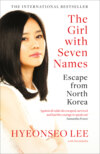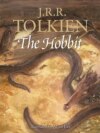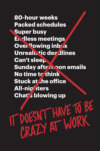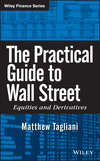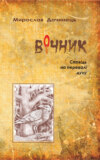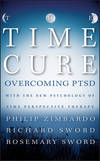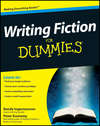Kitabı oku: «The Girl with Seven Names», sayfa 3
Chapter 4
The lady in black
The school year started in September, with a long vacation in the winter, not the summer, due to the difficulty of keeping the schools warm in North Korea’s harsh winters. My kindergarten had a large wood-burning stove in the middle of the classroom and walls painted with colourful scenes of children performing gymnastics, children in uniform, and of a North Korean soldier simultaneously impaling a Yankee, a Japanese and a South Korean soldier with his rifle bayonet.
Ideological indoctrination began on the first day.
The teachers read us stories of child heroes who’d fought the Japanese during the period of colonial rule in Korea, and legends from the boyhood of Kim Il-sung – of how he’d suffered for the people’s happiness even as an infant, giving away his own food and shoes to children less fortunate.
Whenever the Leaders were mentioned, the teachers adopted low, tremulous voices, as if they were intoning the names of living gods. The walls displayed photographs of Kim Il-sung as a young guerrilla; Kim Il-sung surrounded by smiling orphans; Kim Il-sung in his white marshal’s uniform, as the father of our nation. He was tall and striking, and his brave wife, Kim Jong-suk, who had fought alongside him, seemed like a lady from a folktale. It was not difficult to adore them.
The story of the nativity of their son, the Dear Leader Kim Jong-il, brought me out in goose bumps. His birth was foretold by miraculous signs in the heavens – a double rainbow over Mount Paektu, swallows singing songs of praise with human voices, and the appearance of a bright new star in the sky. We listened to this and a shudder of awe passed through our small bodies. My scalp tingled. This was pure magic. The teachers encouraged us to draw and paint the snow-covered wooden cabin of his birth, with the sacred mountain behind it, and the new star in the sky. His birthday, on 16 February, was the Day of the Bright Star. The kindergarten also had a little model of the cabin, with painted-on snow, beneath a glass case.
This was a very happy time for me. We were the children of Kim Il-sung, and that made us children of the greatest nation on earth. We sang songs about the village of his birth, Mangyongdae, performing a little dance and putting our hands in the air on the word ‘Mangyongdae’. His birthday, on 15 April, was the Day of the Sun, and our country was the Land of the Eternal Sun.
These birthdays were national holidays and all children were given treats and candies. From our youngest years we associated the Great Leader and Dear Leader with gifts and excitement in the way that children in the West think of Santa Claus.
I was too young not to believe every word. I believed absolutely that this heroic family had saved our homeland. Kim Il-sung created everything in our country. Nothing existed before him. He was our father’s father and our mother’s father. He was an invincible warrior who had defeated two great imperial powers in one lifetime – something that had never happened before in five thousand years of our history. He fought 100,000 battles against the Japanese in ten years – and that was before he’d even defeated the Yankees. He could travel for days without resting. He could appear simultaneously in the east and in the west. In his presence flowers bloomed and snow melted.
Even the toys we played with were used for our ideological education. If I built a train out of building blocks, the teacher would tell me that I could drive it to South Korea to save the starving children there. My mission was to bring them home to the bosom of Respected Father Leader.
Many of the songs we sang in class were about unifying Korea. This was a matter close to my heart because, we were told, South Korean children were dressed in rags. They scavenged for food on garbage heaps and suffered the sadistic cruelty of American soldiers, who used them for target practice, ran them over in jeeps, or made them polish boots. Our teacher showed us cartoon drawings of children begging barefoot in winter. I felt desperately sorry for them. I really wished I could rescue them.
The teachers were nice to us, in accordance with the Great Leader’s oft-repeated view that children are the future and should be treated like royalty. There was no corporal punishment in schools. We sang a song called ‘We Are Happy’ and meant every word of it. We felt loved, confident and grateful.
My parents never dared criticize our schooling in front of me, or later, in front of Min-ho. That would have been dangerous. But neither did they comment on it, or reinforce what we learned. In fact they never mentioned it. My mother did, however, teach me to praise the Great Leader and the nation for anything good that came our way. This came from her acute sense of caution. Not to do so would have reflected on her, and might have been noticed by an informer. And there were informers everywhere – on the military base where we lived, in the city streets, in my kindergarten. They reported to the provincial bureau of the Ministry of State Security, the Bowibu. This was the secret police. The translation doesn’t convey the power the word Bowibu has to send a chill through a North Korean. Its very mention, as the poet Jang Jin-sung put it, was enough to silence a crying child.
The Bowibu didn’t watch from street corners or parked cars, or eavesdrop on conversations through walls. They didn’t need to. The citizenry did all that for them. Neighbours could be relied upon to inform on neighbours; children to spy on children; workers to watch co-workers; and the head of the neighbourhood people’s unit, the banjang, maintained an organized system of surveillance on every family in her unit. If the authorities asked her to place a particular family under closer watch, she would make the family’s neighbours complicit. Informers often received extra food rations for their work. The Bowibu weren’t interested in the real crimes that affected people, such as theft, which was rife, or corruption, but only in political disloyalty, the faintest hint of which, real or imagined, was enough to make an entire family – grandparents, parents and children – disappear. Their house would be roped off; they’d be taken away in a truck at night, and not seen again.
I never noticed my parents’ silence on the subjects we were taught. This would only take on significance for me years later. Neither did I ever question their loyalty or doubt that they believed the selfless and superhuman feats of Kim Il-sung in saving our nation.
During a summer vacation from kindergarten, my mother took me on a visit to our family in Hyesan. That trip is memorable because I heard another myth that was to shape my childish idea of the world. It was told to me by Uncle Opium, the drug dealer, at the house of my grandmother.
Opium wasn’t hard to come by in North Korea. Farmers had been cultivating poppies since the 1970s, with state laboratories refining the raw produce into high-quality heroin – one of the few products the country made to an international standard. It was sold abroad to raise foreign currency. North Koreans, however, were forbidden to use it or trade with it. But in such a bribe-dependent economy, plenty of it found its way into the general population. My uncle was selling it illegally in Hyesan and over the river in China, where there was a strong demand. My grandmother used it regularly. Many people did – painkillers and pharmaceutical medicines were often hard to come by.
Uncle Opium had enormous shining eyes, much larger than any of my mother’s other siblings. It was years before the penny dropped and I realized why his eyes looked like this. He told me a lady came down from the sky every time it rained.
‘She is dressed in black,’ he said mysteriously, sucking on a cigarette of rough tobacco and blowing a ring of yellow smoke. ‘If you grab hold of her skirts she’ll take you up there with her.’
Back in Anju I waited days for it to rain. When finally I heard thunder I ran out of the house and looked up at the clouds. The raindrops splashed on my face. If the Respected Father Leader Kim Il-sung could appear in the east and in the west at the same time, it seemed quite reasonable to me that there would be a lady in black who flew among the clouds. I began to picture her realm up there in the sky. The thought of this lady scared the wits out of me, but I was too curious not to look for her. I held on to the steps in case she came down as fast as the rain and snatched me.
My mother quickly ruined the magic.
‘What are you doing?’ she yelled from the front door. ‘Get in here.’
‘I’m waiting for the lady in black.’
‘What?’
Then her expression changed, as if she were remembering something. She clearly had some recollection of this story from Uncle Opium, and then realized I’d completely fallen for it. Suddenly she was laughing so hard she was bent over with her arms wrapped around herself. Then she hugged me and I could feel her body shaking. She was still laughing hours later when my father came home and she was cooking the rice for dinner, dabbing her eyes with her sleeve.
Now I was confused.
Some magical stories I was supposed to believe in with all my heart and could never doubt. Others I believed in at a cost to my dignity. I had really wanted to believe in the lady in black.
The world inside the kindergarten was clear. The teachers had simple answers for everything good and everything bad. Outside the kindergarten, the world was more confusing. Uncle Opium could probably have explained it to me, if I’d ever been able to have a normal conversation with him.
At his house once I saw a solid gold bar on the table, and next to it a gluey lump that looked like tar. I asked him what it was and he told me it was opium.
‘Stick the end of your pencil in and take a bit,’ he said.
‘What do I do with it?’
He gave a breathy, hissing laugh. ‘Eat it, of course.’
I had a cold at the time and wasn’t feeling too good. The symptoms disappeared within minutes.
Anju may have been grimy and bleak but the hills surrounding it were beautiful. I enjoyed three idyllic childhood summers there, picnicking in fields of wild flowers. In certain months of the year the air would be buzzing with dragonflies. They hovered and flashed in iridescent blues and greens. We would chase them, running through the long grass. All the kids did this. At the weekend, my father would join in. Some kids bit off the heads and ate them, saying they tasted nutty.
On one outing we laid out our picnic mat in a copse of tall pine trees. My mother started hitting the trees with a long branch and suddenly it was raining pine cones. I ran around gathering them in a sack. We had never laughed so much together.
That scene is vivid in my mind as a moment of pure happiness just before a painful personal tragedy for me. We arrived home to find that my little dog had been killed. One of the trucks at the military base had run her over. I cried so much. My father told me there would not be another pet dog. They were too hard to obtain.
But it wasn’t that event that overshadowed my memories of Anju. There was far worse to come.
Chapter 5
The man beneath the bridge
On a hot afternoon when I was seven years old, my mother sent me on some errand into town. It was unpleasantly humid. A fetid smell came off the river. There were flies everywhere. I was heading home along the riverbank when I saw the crowd ahead of me. A dense mass of people had gathered on the road beneath the railroad bridge. I had an odd intuition that this was something bad, but I could not resist going to look. I slipped my way into the crowd to see what was going on. The people near the front were looking upward. I followed their gaze, and saw a man hanging by his neck.
His face was covered with a dirty cloth sack and his hands were tied behind his back. He was wearing the indigo uniform of a factory worker. He wasn’t moving but his body swayed slightly on a rope tied from the iron railing of the bridge. Several soldiers were standing about, stony-faced, with rifles on their backs. The people watching were still and quiet, as if this were some sort of ceremony. The rope creaked. I caught a reek of male sweat. The scene confused me because people were watching but no one was moving and no one was helping the man.
The most random detail stuck in my mind. I remember how the man standing next to me lit a cigarette and held it down by his side so that the smoke gathered foggily in his fingers. There was no breeze. Suddenly it seemed like there was no air to breathe.
I had to get out of there. I almost fought my way out.
When I told my mother what I’d seen she went as pale as a fish. She turned her back to me and pretended to busy herself with something. Then she muttered: ‘Don’t ever watch those things.’
Over the next few days there was a spate of hangings across the city, and my mother became unnerved. One of the victims was someone she knew – a woman named Baek Kyeong-sul. She was accused of seducing a state bank official in order to steal money, and was sentenced at a people’s trial. My mother was there. These were not actually trials at all – the charges were simply read out and the victim executed on the spot. If the accused were to pass out from terror beforehand, the authorities were meant to adjourn to another day, so the victim was kept from knowing what was happening until the last moment.
It was near the start of the rainy season and the skies over Anju had been rumbling with thunder all morning, which further set my mother’s nerves on edge. She was pregnant with Min-ho, and not feeling herself.
The woman emerged from the back of a police van and found herself facing eight judges seated behind a table set up in a public square, which was surrounded by a cordon of police and a large silent crowd. Her hands were bound behind her back and her face so blackened and puffy from beatings that my mother hardly recognized her. She was disorientated and stared about with an animal terror in her eyes.
In a hail of static, the charges were read out through a loudspeaker.
The woman fell to her knees and began to whimper, saying she was deeply sorry and ashamed for what she had done. My mother knew that the woman had a son who was a police officer; the woman must have believed that her son’s connections would save her.
‘The sentence is death by hanging.’
The woman’s head jerked upward in shock. She looked around at the crowd as if appealing to them. Behind the police vans was a tall wooden pole with a noose hanging from it that had been kept hidden from her view. Police grabbed her at once and frogmarched her to the pole. She struggled and kicked out and wailed, but the noose was over her head in an instant. The rope was yanked taut, lifting her up into the air. She writhed and twitched for a few seconds before going limp.
When my mother returned home, the rain was coming down in lead rods. She had an odd, vacant stare in her eyes. She said she hadn’t realized until then that it was as easy to kill a person as to kill an animal. The corpse had been thrown roughly onto the back of a truck. She’d asked one of the court officials where it was to be buried, and was told it would be taken to a garbage pit and covered in ash.
That was the detail that unhinged my mother.
Without an ancestral grave for her descendants to honour, the woman’s spirit would find no rest. It would haunt the living.
That summer my father’s work had been taking him to military bases all over the country. Without his reassuring presence, my mother was having problems sleeping after the hangings. At breakfast she’d be hollow-eyed, saying she’d seen the ghosts of the victims in nightmares. She couldn’t concentrate on the simplest task. She was badly spooked and wanted to get out of Anju. I’m not sure whether it was after pressure from her, or simply an extraordinary coincidence, but she was immensely relieved when my father announced that we were relocating – to North Korea’s second-largest city, Hamhung.
We left Anju, but did not go immediately to Hamhung. My parents wanted the new baby to be born in our home city, Hyesan, so that his birth documentation would be registered there, the same as the rest of the family’s. So it was in Hyesan that my little brother was born. North Korean families have a tradition of naming children with the same first syllable, so although I was Min-young, my brother became Min-ho. I was seven years old, and feeling peevish at all the cooing and adoring the new arrival was receiving, and the stream of family visitors – Aunt Old, Aunt Pretty, Aunt Tall, Uncle Opium and Uncle Cinema – coming to see him, with congratulations and armfuls of gifts, but my mother was radiant, and overjoyed to be surrounded by family members and old neighbours once again.
There was one family matter, however, that she was not looking forward to. My father’s parents wanted to meet their new grandson. At this time I still had not learned the truth about my parentage. I thought my father’s parents were my blood grandparents, but for reasons obscure to me we had never got around to meeting them.
Their house had cold wooden floors. I didn’t like being there. Neither, I sensed, did my mother. My grandfather was a forbidding presence who did not invite conversation. At dinner, he sat on the floor away from us, at a separate table. My grandmother served him first. It was a mark of respect, but it seemed to put a distance between everyone. My father, who normally exuded calm and confidence, was decidedly tense and talking too much to fill the silences. There was none of the chatter that surrounded us when we visited my mother’s mother and my uncles and aunts.
I sensed the moment I arrived at their house that these grandparents liked Min-ho much more than me. The only time their faces lit up was when they held him, or when he gurgled and cried. With him they were affectionate. With my mother and me they were cool and civil. I told myself it was because Min-ho was a boy and these formal, old-fashioned people preferred grandsons to granddaughters. He was my parents’ only son, which gave him a position of supreme importance in the family. Over the coming years, each time we visited, they would have gifts for Min-ho, but not for me. I realize now that my mother must have known that this was how it would be. It was why she went out of her way to be generous and bighearted toward me, to give me pocket money and sweets when I asked for them, and nice clothes. It was also the reason she presented me, on my ninth birthday, with the most marvellous gift I ever received in North Korea.
Chapter 6
The red shoes
I was very excited about the move to Hamhung, on the east coast. At that time Hamhung was a major industrial hub, famous as a centre for the production of Vinylon – a synthetic fibre, used in uniforms, that was invented in North Korea. It was an achievement we were so proud of that patriotic songs were sung about it. It held dye badly, shrank easily, was stiff and uncomfortable to wear, but it was marvellously flame-resistant. The city also boasted many restaurants and a grand new theatre – the largest in North Korea.
I couldn’t stop pointing at the numbers of vehicles everywhere; there were far more than in Anju, and more bicycles, too. The streets were broad, grand boulevards with trolley buses that trailed sparks from the overhead cables, and the buildings weren’t so shabby. The air was badly polluted, however. On some mornings the sky had a sulphurous yellow tint and stank of chemicals from the vast Hungnam ammonium fertilizer complex, which the Great Leader himself had visited several times and delivered on-the-spot guidance. His words were everywhere, on red-painted placards throughout the city, carved on stone plaques, and in letters six feet high on the side of Mount Tonghung. His image was omnipresent, in murals of coloured glass, in statues of marble and bronze, in portraits on the sides of buildings, which depicted him as soldier or scientist; as stern ideologue or jovial friend of children.
Despite my father’s high rank in the air force the accommodation was barely adequate. This time our home was on another military base in a six-storey concrete apartment block with no elevator. We had three rooms and cold running water. It was decorated with yellowed wallpaper, which my mother immediately had changed for a better-quality washable type. She had the bathroom walls tiled blue. In winter the pipes froze; in summer mould would turn the outside walls black.
I was very lucky, however, although I still did not fully understand quite how lucky. My father’s rank not only gave him access to goods many people didn’t have, but he received a lot of food and household items as gifts and bribes.
In theory the government provided for everyone’s needs – food, fuel, housing and clothing – through the Public Distribution System. The quality and the amount you received depended on the importance of your work. Twice a month your workplace provided you with ration coupons to exchange for the goods. Until a few years previously, the Party had still seriously been thinking of abolishing money. When the system actually worked, money was only needed as pocket money, or for the beauty parlour. But most of the time, the communist central planning system was so inefficient that it frequently broke down, rations dwindled or disappeared through theft, and people relied more and more on bribery or on unofficial markets for their essentials – for which cash, and often hard foreign currency, not the Korean won, was required.
We ate out quite often at restaurants that served naengmyeon, for which Hamhung is famous. These are noodles served in an ice-cold beef broth with a tangy sauce, although there are many variations. My mother would eat naengmyeon with her eyes closed in pure pleasure. She loved it to the point of addiction.
On Sundays, I played with neighbourhood girl friends outside on the concrete forecourt of our apartment block. We would skip or play a type of hopscotch called sabanchigi.
For the other six days of the week I was either at school or busy with school-related activities. It wasn’t just the children’s time that got filled up. Everyone – factory workers, cadres, soldiers, dock workers, farmers, teachers, housewives, pensioners, and my parents included – was kept constantly busy with some kind of after-hours organizational meeting or mind-numbing activity, such as ideological ‘study groups’ or ‘discussions’, which often involved memorizing the speeches of the Great Leader and the Dear Leader, or attending lectures that could last for hours after work, on everything from the revolutionary history of the early Party and new techniques for pig rearing, to hydroelectric power and the poetry of Kim Jong-il. This was part of the communist way – to ensure that no one could ever deviate into a selfish, individualistic or private life – but it was also a system of surveillance. Perpetual communal participation meant that the hours in each day when we were not being watched, by someone, were few.
I had begun elementary school in Anju, but now I had to join a new one in Hamhung, which filled me with apprehension. My mother had real trouble getting me to enter the building on my first day. The children seemed rough, and had a different accent; there was no ‘village’ feel as there had been at the school in Anju. Banners in the school corridors made our priorities clear: ‘Let us study for our country!’ and ‘Always be on the alert for Marshal Kim Il-sung!’
But I was outgoing, and curious about my new classmates. I soon made some good friends among the girls. That came from the confidence a loving family gave me.
It was at school in Hamhung that I received my initiation into ‘life purification time’, or self-criticism sessions. These have been a basic feature of life in North Korea since they were introduced by Kim Jong-il in 1974, and are the occasions almost everyone dreads. They start in elementary school and continue throughout a person’s life. Ours were held every Friday, and involved my entire class of forty students. Our teacher presided. Everyone took turns to stand up, accuse someone, and confess something. No one was excused for shyness. No one was allowed to be blameless.
It must have been humiliating and painful for the adults, standing up to criticize a colleague for some work-related or personal failing in front of the whole workforce. But there was only so much for which young children could be held guilty. The atmosphere in class was deadly serious. The teacher would not tolerate the mildest levity, even though the accusations were often ludicrous. The formula was to open the session with a commandment from Kim Il-sung or Kim Jong-il and then stand up and accuse the child who had violated it. When the accusations started to fly and fingers started to point, this was the only time, ironically, that we called each other ‘comrade’.
These sessions could create an atmosphere of great fear and bitterness, even among children. But often, through a humanity we all possess, adults and children alike would find ways of taking the poison out of them. If I couldn’t face accusing someone I’d sometimes accuse myself, which was permitted. Or a friend and I would strike a deal where she would criticize me one week, and I would criticize her the following week with some prearranged made-up charge. And so my friend would stand and say: ‘Our Respected Father Leader said that children must focus on their studies with dedication in their hearts and a clear mind.’ Then she’d point at me. ‘In the last week I have noticed that Comrade Park is not listening in class.’ I would hang my head and try to look chastened. The next week would be my turn. That way we stayed friends. My mother would make a similar pact with colleagues at her workplace; so did Min-ho when he got to elementary school. The sessions taught me a survival lesson. I had to be discreet, be cautious about what I said and did, and be very wary of others. Already I was acquiring the mask that the adults wore from long practice.
Often, students would find themselves criticized unexpectedly. When this happened, they took revenge. In rare cases, it could be lethal. On one occasion, in my final year of secondary school, a boy in my class pointed at another boy and said: ‘When I went to your house, I saw that you had many things you didn’t have before. Where did you get the money to pay for them?’ The teacher reported the criticism to the headmaster, who reported it to the Bowibu. They investigated and found that the family had a son who had escaped the country and was sending them money from South Korea. Three generations of the family were arrested as traitors.
Like the ever-present danger of informers, I took the self-criticism sessions to be part of normal life. But I also had the sense there was nothing positive about them; they were entirely negative.
The biggest milestone of my youth came at the age of nine, in Hamhung. With all other children my age, I entered the Young Pioneer Corps, North Korea’s communist youth movement. Ceremonies were held at schools all over the country on the same day, with parents and teachers assembling at large public places for the occasion. This is considered one of the proudest days in a North Korean’s life.
Joining the Pioneers is compulsory between the ages of nine and fourteen, but not everyone is accepted at the same time. First, there is a formidable test of memorizing: I had to show that I’d learned the Young Pioneer’s rights and duties by heart. From now on, I followed the orders of the Great Leader and the Dear Leader, no matter where, no matter what. I must think and act in accordance with their teachings. I must reject and denounce anyone who directed me to do anything against their will. I was good at memorizing, and passed the test easily. And as I’d done well in the most important subjects on the school curriculum – the revolutionary history of Kim Il-sung and Kim Jong-il – I was selected for the first induction ceremony of the year, on Kim Jong-il’s birthday, 16 February, in 1989.
A few days before the ceremony my mother bought me a pair of new shoes especially for the occasion. They were foreign-made and from a dollar store – a special shop for people who had access to foreign currency and wanted to spend it. I was so excited about these shoes that, in order to calm me down, she let me take a peek at them. They were patent-leather Mary Janes, fastened with a buckle, and were a luscious deep red – nothing like the cheap state-issue shoes we all wore, and which only came in black. My mother wouldn’t let me take them out of the box until the night before the ceremony.
At the ceremony we were to receive a red cotton scarf and a small silver Pioneer badge to pin on our blouses. To me the scarf was the mark of a grown-up and meant that I was no longer a kid. But this excitement was displaced unexpectedly by my anticipation of the red shoes. The wait was agonizing. The night before the ceremony I slept with them next to me on the bed – I woke a few times to check they were still there.
When the morning came at last I was ecstatic. The event was held in my school hall. The walls were adorned for the occasion with paintings and collages that the children had made – of the secret guerrilla base in the forests of Mount Paektu where the Dear Leader was born, and of the new star that had appeared in the heavens on the night of his birth. Amplified speeches boomed from the headmaster and the teachers on the stage, whose centrepiece was an enormous bouquet of kimjongilia, a fleshy red begonia that is the flower of Kim Jong-il. Everyone then stood to sing the ‘Song of General Kim Jong-il’, and finally the Pioneers stepped up to the stage to receive, with great solemnity, their scarves and badges. The parents in the audience applauded each one.
